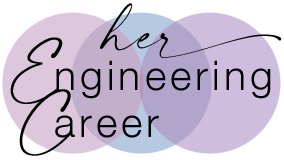Show Notes
I hope you’re enjoying the new series that we started last week on some of the top challenges for women engineers. The first episode of this series was Why Women Leave Engineering and Why You Should Stay. And today we’ll be talking about the late career plateau.
If you’re in late career you may already be experiencing the plateau. But even if you’re not there yet, the late career plateau is something you’ll want to be prepared for.
Back in Episode 13 I mentioned that I’ll be presenting a session at the WE21 Conference in Indianapolis this month. This – the late career plateau – is the topic that I will be presenting. Today’s episode serves as a teaser for my conference session.
If you’re at the conference watch for this workshop and certainly take the opportunity to participate. I’d love to see you there.
Picturing the Late Career Plateau
You are into the third trimester of your career. You’ve built a reputation as an expert in your field and a stellar leader.
But you feel your level of challenge, your motivation, and your opportunities are starting to wane. You feel that the steep trajectory you were on in mid-career is leveling off.
This is the late career plateau.
My graph of the plateau shows the three trimesters of your career: early career, mid-career, and late career. The x-axis is time and the y-axis is challenge, motivation, or opportunity. These are actually what levels off. Notyour ability or value as an engineer.
The curve of the graph starts at zero. And in early career it increases at maybe a 45 degree angle. You’re learning and establishing your engineering foundation. Your challenges, motivation and opportunities are growing.
In mid-career is where you really pick up your stride. The curve increases at a steeper slope: your challenges, motivation, and opportunities are high.
As you approach late career, though, the slope starts to flatten out – for the reasons mentioned below. The actual slope depends on your particular situation. But relative to mid-career, the late-career slope can taper off significantly.
How can you avoid this dreaded late career plateau?
Well, you may or may not be able to avoid it entirely. But at the very least you can prepare for it. There are ways to keep yourself engaged and challenged while still having an impact in late career.
To help you prepare, let’s take a look at the signs of the late career plateau and what you have to offer as a late career engineer. Then I’ll provide some tips for preparing for the plateau. And we’ll wrap up with some ideas for your late career role.
When You Know You’re a Late-Career Engineer
You’re going to reach a certain point in your career when you realize that you are among the more – shall we say – “seasoned” employees, the well-experienced, the not-so-young-anymore. There are signs that will tell you that you’ve reached that last trimester.
You know you’re a late-career engineer when:
- You have less energy for new changes.
- New technologies emerge faster than you can keep up.
- You’re more often the oldest person in the room.
- There are fewer roles available at your level of knowledge and experience.
- It’s harder to find increasingly challenging assignments that aren’t same-old.
- You notice you’re left out of strategic planning and ideation meetings.
- Networking across age groups becomes more challenging.
- Your inner critic starts telling you you’re old-school and irrelevant.
- People start looking past you into the future.
- People start asking you when you’re going to retire.
You may not be there yet. But these are the things you’ll start noticing once you’re close. They’re not exactly positive things to look forward to. But late career is not all that pessimistic.
The Late Career Engineer’s Advantage
As a late career engineer, you do have a number of advantages:
- You have a wealth of experience and institutional knowledge – deep organizational insight (or at least professional insight), higher levels of confidence and risk tolerance, corporate history, extensive technical knowledge, and next-level skills.
- You have leverage with organizational leaders, like higher-level managers and executives.
- You have wide and influential connections to known leaders and experts in the field, to technical communities, and to professional associations.
- You have technical mastery and mature problem-solving approaches as evidenced by your reputation, your credibility, your awards, certifications and other recognitions.
These are the advantages that you can leverage in your late career.
5 Tips for Preparing for the Late Career Plateau
- Understand your employer’s policies and history regarding late career employees and their work. Some organizations have employment time limits. Some are better at engaging late career employees than others.
- Know how your organization works. If you can’t be okay with that, have a Plan B.Be realistic about your opportunities and abilities. You may not always be able to do what you’ve done in the past – for a multitude of reasons. Have an open mind and a positive attitude.
- Have a vision, goals and a plan. Just like always. Talk about them with your management. Ask for what you need and want.
- Propose ideas for your late career role. Know what you have to offer and what will motivate you. Be creative and think outside the box.
- Maximize the benefit you provide, and balance that with your personal fulfillment. Your organization should be able to take advantage of your depth of knowledge and experience. While you should experience job satisfaction and feel the positive impact you’re having.
Ideas to Inspire Your Late Career Engineering Role
Lastly, I want to seed some ideas for the kinds of roles you’ll be able to play in your late career. Again, be creative and think outside the box. The role you play must fulfill a need for the organization. But it doesn’t necessarily have to be a role that already exists.
Here is a list of ideas. You can expand on it with your own. It is not a list of roles, per se. It’s a list of ideas to inspire your late career plan – to inspire your own ideas for what roles you might play.
- Give back by mentoring, advising, sponsoring, teaching, or training
- Stay savvy with new technology and evolving cultures
- Lead special projects (research exchange, building renovation, app design…)
- Connect with new leaders and high potentials
- Give presentations internally in your areas of expertise
- Host events (peer review, technical challenge, award ceremony…)
- Represent the company at professional and community events
- Cultivate networks (professional, affinity, project-based…)
- Take a sabbatical (do new research, study corporate issues, set up strategic alliances…)
- Get involved in intrapreneurship
What would you add to this list? What are some of the roles you might play in late career? What will be your late career plan? How will you prepare for the late career plateau?
Recap: As you can see, the late career plateau is a complex and intriguing topic. We first discussed the worrisome signs of the late career plateau. Then we considered the advantages that late career engineers have.
Next I presented some tips for preparing for the late career plateau. And we wrapped up with a list of ideas to inspire your late career plan.
Next time on Her Engineering Career Podcast we’ll discuss the challenge of moving upward in the engineering workplace. Be sure to tune in for Episode 18.

